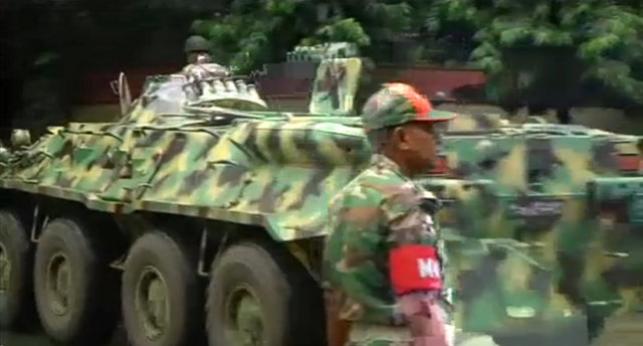Could the hostage situation at Holey Artisan restaurant on Friday have been resolved sooner? Could the commandos have launched the operation earlier? Would a quicker response have led to lesser casualties?
Such questions are arising in the public mind. And the grieving families of the victims are seeking answers.
The only official source of information concerning the hostage situation, the number of deaths, the identities of the victims and of the killers, has been the press conference conducted by the Inter-Service Public Relations (ISPR) directorate on Saturday afternoon. There was no provision for questions and there was nothing outside of the written statement.
According to the authorities, “At 8:45pm on the night of 1 July, miscreants firing gunshots stormed into the restaurant Holey Artisan Bakery on Road 79, Gulshan 2 in the capital, and took all those inside hostage.”
The statement said that at 7:40am Saturday morning a commando operation was launched by the Bangladesh army’s para-commando force and ended at 8:30am.
Media reports give an idea of the events which unfolded on that night.
At the outset of the hostage situation the police had taken initiative to bring the situation under control. Before they could realise the seriousness of the situation, two senior police officers – Rabiul Islam and Salahuddin – were killed. Another 35 were injured. The Rapid Action Battalion (RAB) was with the police in this operation and some of them were wounded too.
At one point the RAB director general Benazir Ahmed instructed the media to remain outside of the security barricades and to stop broadcasting live news of the ongoing situation. It was evident from the broadcasts that the actions of some of the police and RAB personnel were clearly unprofessional, such as trying to tackle the situation without flap jackets or helmets.
Benazir Ahmed spoke of an attempt to negotiate with the assailants for a peaceful resolution to the crisis. There were rumours of negotiations to release the hostages and about certain conditions, but the authorities confirmed no contact was established with the attackers.
The question naturally arises, if there were no negotiations, why did it take 12 hours to launch the rescue operation? Does the present leadership of the security forces have any experience of negotiating hostage situations? Why was so much time wasted?
The risk of deaths, particularly of the hostages, is very high in such situations. It was even more important for a decision to be taken, given that there were so many foreign nationals among the hostages. So what took them so long to reach a decision? Bureaucratic delays can prove fatal in questions of national security.
According to the official statement, 20 of the hostages were killed with sharp weapons before the rescue operation. That is, they were hacked and slaughtered to death. The statement said 17 of the killed were foreign nationals and three were Bangladeshi (one being an American national of Bangladeshi origin).
When did the authorities come to know about the killings inside the restaurant, before or after the operation? Hacking or slaughtering someone to death is not as fast a killing with a bullet. So why were they given so much time to carry out this method of killing?
It is often highlighted that our security forces are well advanced in IT. Biometric registration of mobile SIMs was supposed to prevent such crimes. But Amaq, said to be the news agency of the global terrorist organisation IS, announced that they had killed 24 persons. From the timing of the tweets posted by the controversial SITE intelligence, it is evident that the rescue operation was launched an hour and a half after the pictures of the dead bodies were released. What were the so-called media monitoring units of the security forces or intelligence agencies doing?
Was there a lack of coordination between the army’s para-commando unit, the specialised weapons and tactics (SWAT) team, RAB, the police and the intelligence agencies?
The security forces need some serious introspection to find the answers, and to ensure our future safety. The parents who have lost their children, the families of the slain foreign nationals, need answers.
Source: Prothom-Alo










